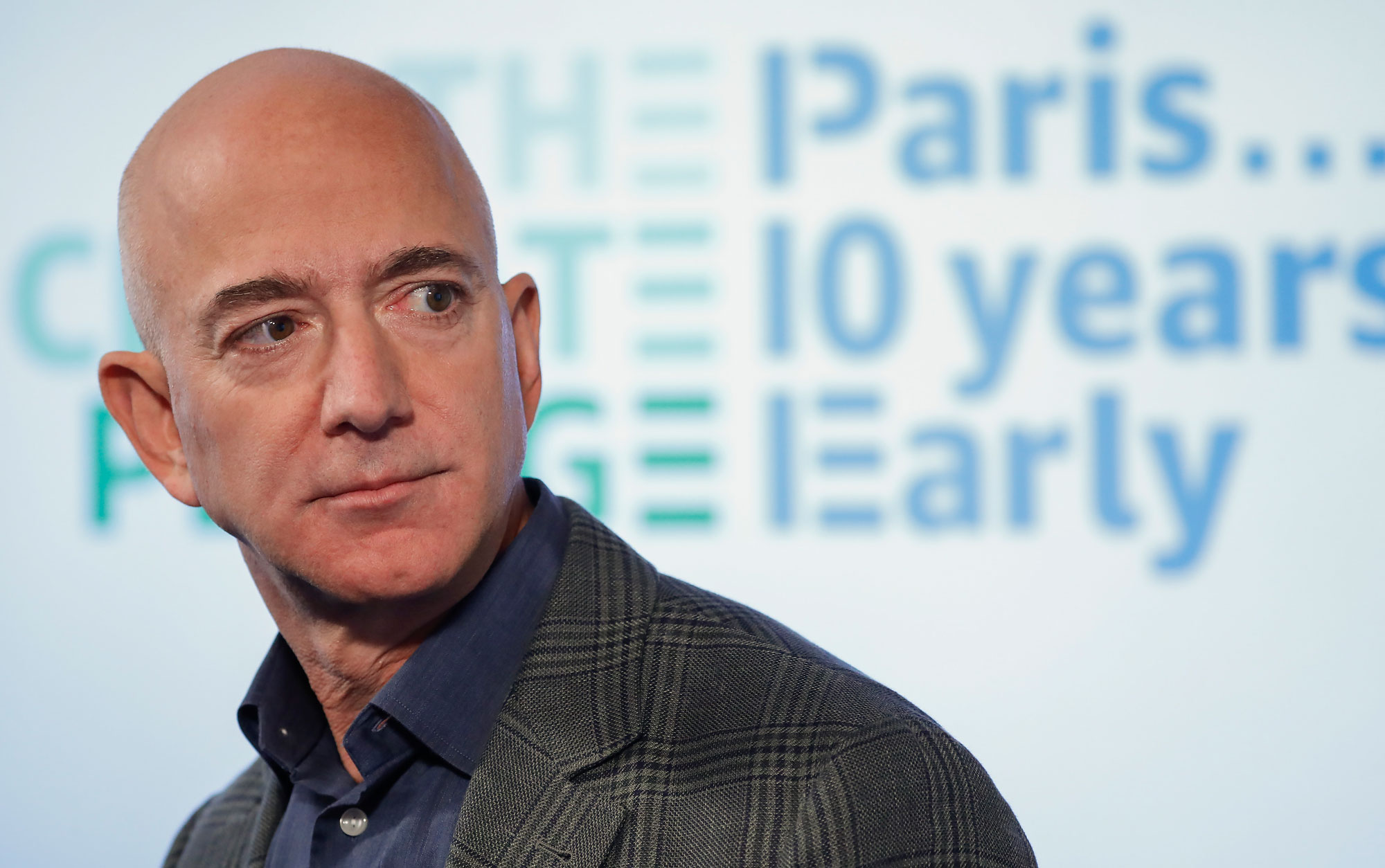Amazon just pledged to hit net zero climate emissions by 2040

While the firm’s big “Climate Pledge” should be applauded, it also seems to amount to climate accounting. The announcement comes on the eve of what could be the world’s biggest climate-change protest.
The news: Amazon CEO Jeff Bezos on Thursday pledged to build or buy enough renewable power to supply 80% of the company’s electricity needs by 2024 and 100% by 2030. By 2040, the retail giant plans to cut or offset the carbon emissions across all its operations. To help meet the target, Amazon has agreed to purchase 100,000 electric delivery vans from Rivian, a massive order for a startup that the company helped fund but which has yet to deliver a vehicle. Amazon is also committing $100 million to help restore and protect forests, wetlands, and other ecosystems that could help capture and store greenhouse gases.
The timing: Millions of people across hundreds of countries are expected to skip work or school to take the streets on Friday, including thousands from the Seattle and Silicon Valley tech giants.
The response: The plan was generally met with praise, but as ever, the devil is in the details. In part it could be dismissed as climate accounting: investing in solar and wind power elsewhere to offset the portion of fossil-fuel-generated electricity that’s actually being used. In addition, accurately measuring forest offsets, which the company will need to balance out emissions from plane flights and other carbon-heavy aspects of its operations, is notoriously difficult.
The company’s own climate activist employee group, Amazon Employees for Climate Justice, trumpeted the pledge as a “huge win” but said it didn’t go far enough. “As long as Amazon uses its power to help oil and gas companies discover and extract more fossil fuel, donates to climate-denying politicians and think tanks, and enables the oppression of climate refugees, employees will keep raising our voices,” they said. More than 1,500 workers there still plan to walk out tomorrow.
Not alone: Google also got in on the act, pledging to invest more than $2 billion in new energy infrastructure like wind turbines and solar panels, building on its position as one of the world’s biggest corporate buyers of renewable energy. The company says it has been carbon neutral since 2007, but in practice it still relies on polluting sources to function. This new commitment should help to reduce that dependency.
Workers at Google and Microsoft have also pledged to participate in the climate strikes on Friday.
Deep Dive
Climate change and energy
The problem with plug-in hybrids? Their drivers.
Plug-in hybrids are often sold as a transition to EVs, but new data from Europe shows we’re still underestimating the emissions they produce.
Harvard has halted its long-planned atmospheric geoengineering experiment
The decision follows years of controversy and the departure of one of the program’s key researchers.
Why hydrogen is losing the race to power cleaner cars
Batteries are dominating zero-emissions vehicles, and the fuel has better uses elsewhere.
Decarbonizing production of energy is a quick win
Clean technologies, including carbon management platforms, enable the global energy industry to play a crucial role in the transition to net zero.
Stay connected
Get the latest updates from
MIT Technology Review
Discover special offers, top stories, upcoming events, and more.